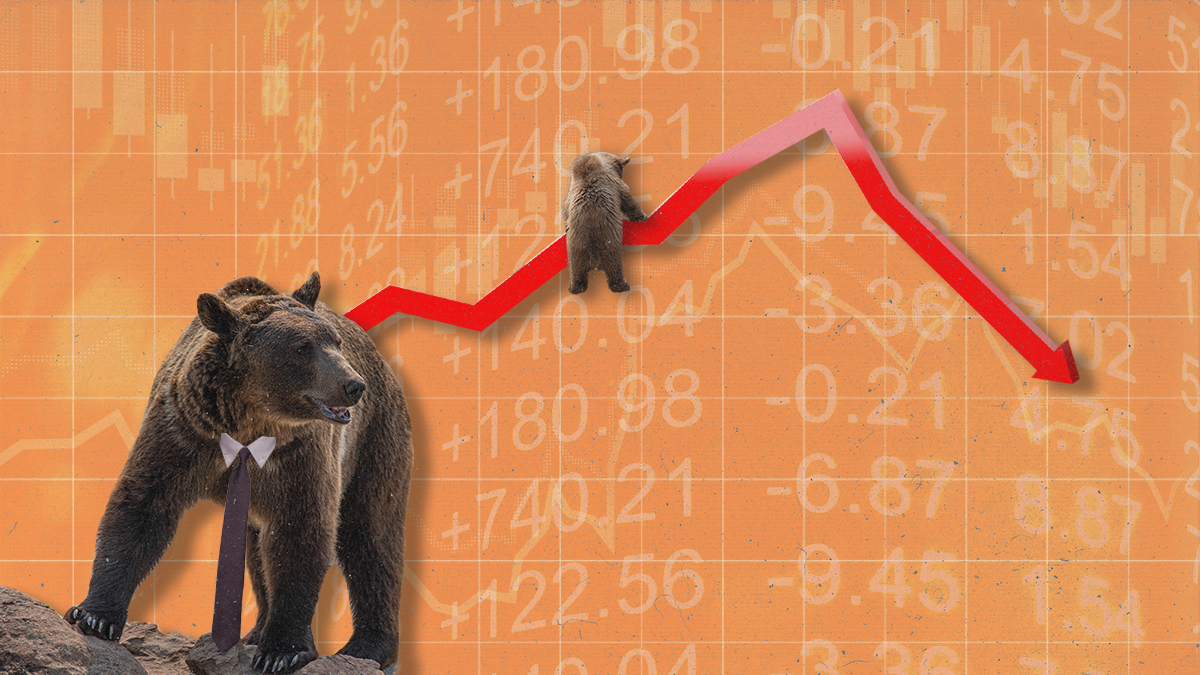If you're an American worker with a 401(k), you're probably worried about being in the claws of a certain furry animal everyone seems to be talking about these days.
We're referring to a bear market, a Wall Street term for when the value of stock indices like the Dow Jones Industrial or the S&P 500 fall under 20% or more from a recent peak for a sustained period of time. Since bears hibernate, it’s investor-speak for a market in retreat.
On June 13, the S&P 500 officially entered bear market territory — with big implications for both investors and people who are indirect participants in the stock market through their 401(k), America's most popular company-sponsored retirement account. Simply put, since your 401(k) is likely invested in stocks, the longer the current slump lasts, the less money you'll have for retirement.
But that's only true if the bear market is still ongoing when you retire.
In other words, if you can afford to wait it out, odds are that the bear will eventually be followed by a bull (market) — aka a cycle of expansion — once the current economic turmoil subsides. Still, you might have a problem if you're a baby boomer with only a few years left to reach retirement age, in which case you'll have to crunch the numbers to decide whether it's best to cash out now — with less money, and pay taxes on what you withdraw — or pin your hopes on a swift recovery.
The thing is, no one knows how long bear markets last. The average historical duration is about a year, but in the early 1970s the bear stayed in its cave for almost two years, the S&P 500 lost half its value, and the US economy took a whopping 69 months to completely recover.
During the 2007-2008 Great Recession, the S&P 500 decline was even sharper (57%) and the market only recovered after 49 months.
Will the bear be followed by an even scarier recession? Maybe, but it's not guaranteed.
One key difference between the current US bear market and previous ones that preceded recessions is that unemployment is still very low at 3.6%. When Americans start losing their jobs at a higher rate, though, that's likely a sign that a recession is on the way.
What’s more, with the Fed getting tough on interest rates to tame sky-high inflation, it’s certainly possible that the US economy won’t hit the Goldilocks “soft landing” of bringing inflation down to about 2% while avoiding a recession (two consecutive quarters of negative GDP growth).
Regardless, “making any prediction is unusually fraught” now due to an unprecedented set of shocks, including COVID and the war in Ukraine, says Robert Kahn, Eurasia Group's director of Global Macro-Geoeconomics.
Still, he adds, a recession seems more likely than not. It'll be painful, but not necessarily a catastrophe.
“Recessions can be moderate in tone,” Kahn explains. And whether or not we get one, “we’re going to have tremendous uncertainty heading into this slowdown period about how that plays out.”
